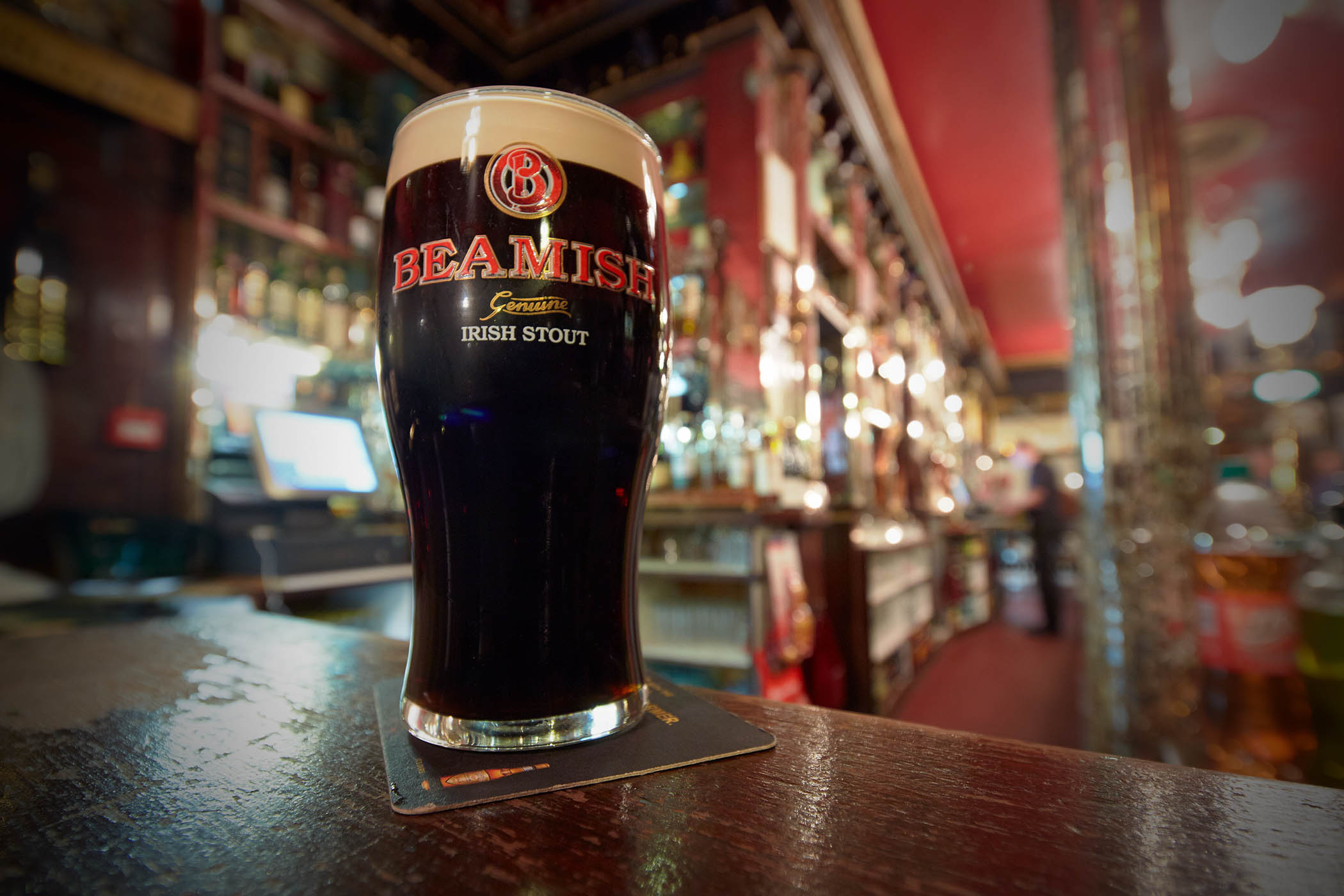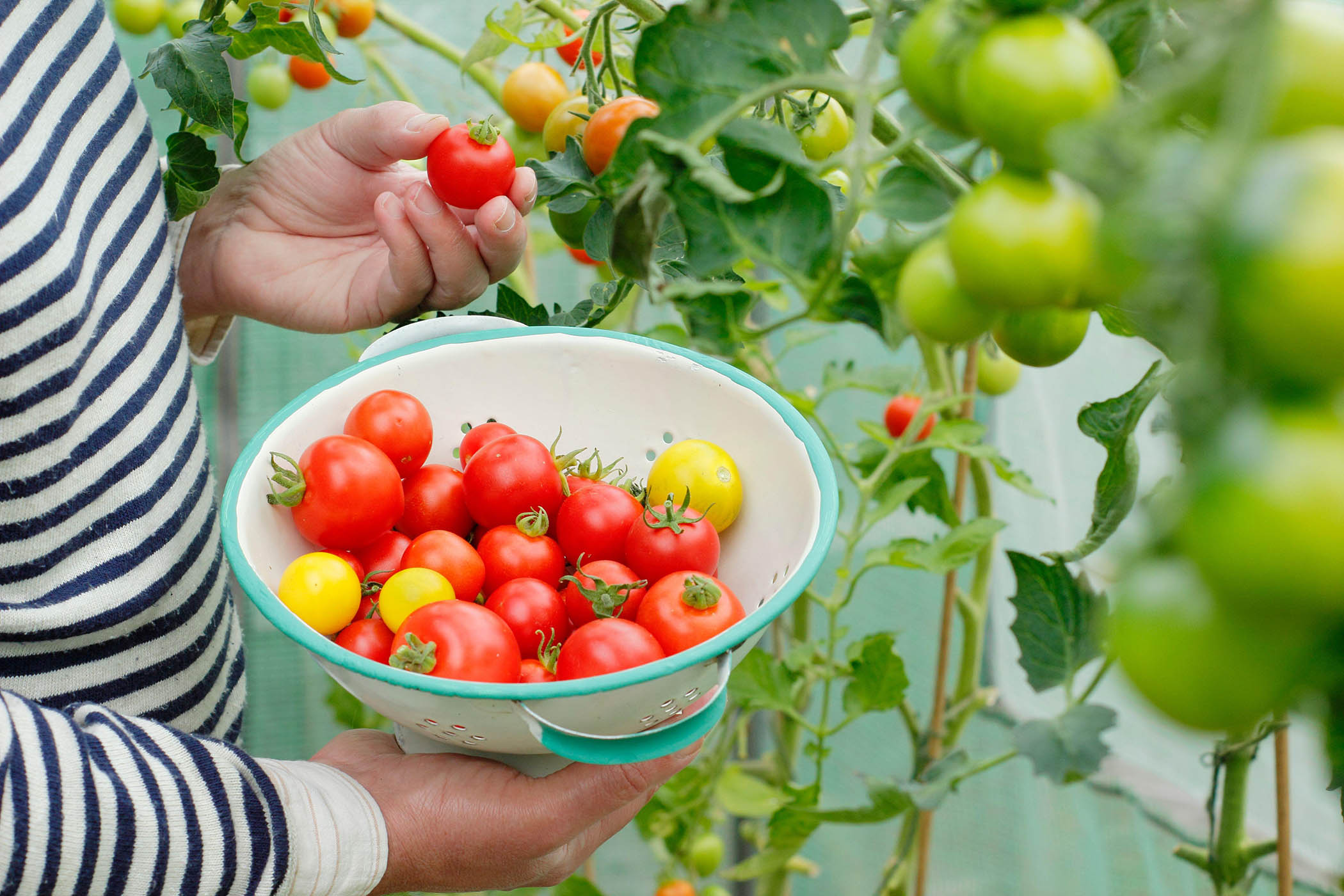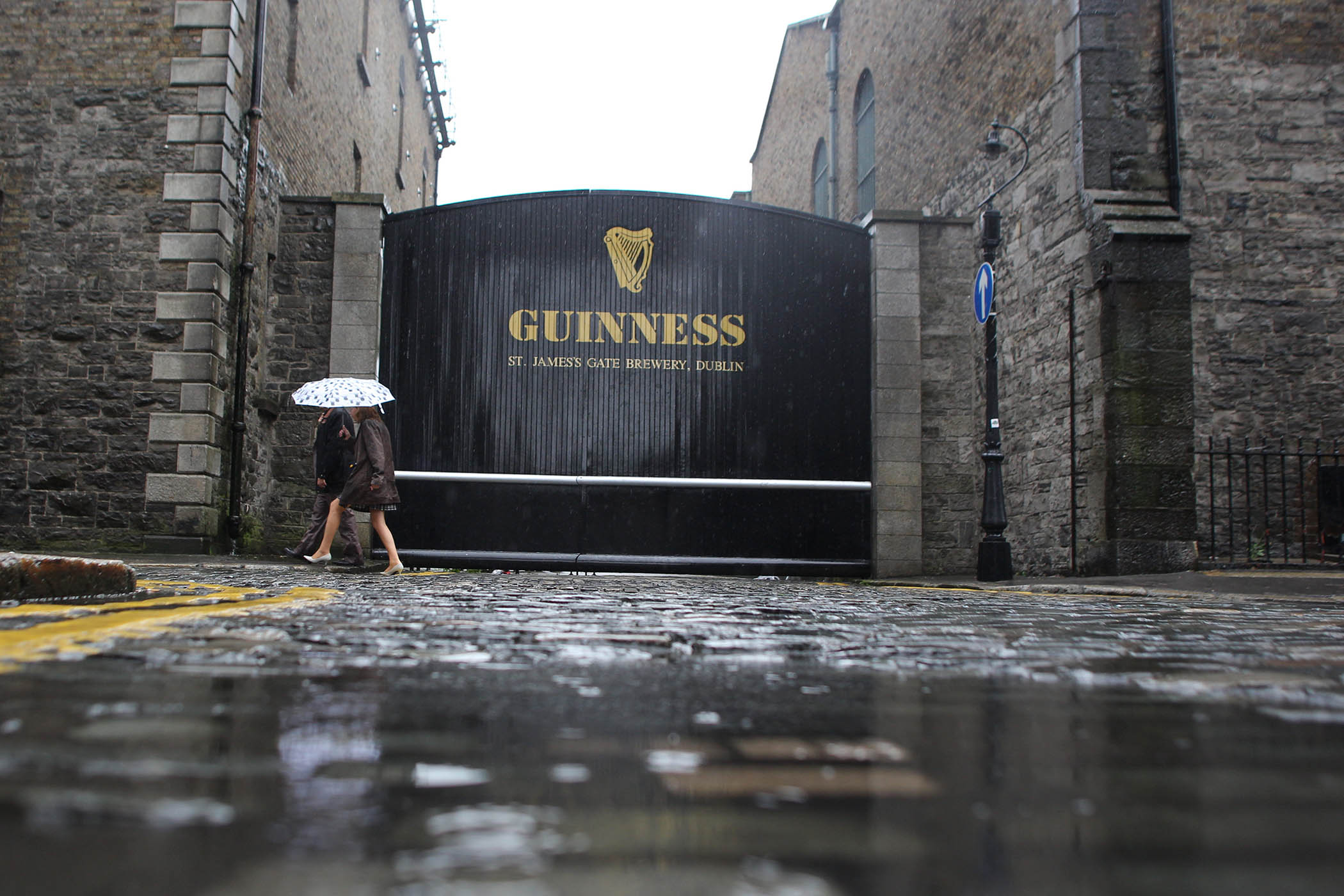Guinness has had a good few years. From celebrities jostling to post themselves downing pints and “splitting the G”, to a Netflix drama series about the Guinness family, the Dublin stout, once considered an “old-man drink”, has never been so fashionable.
But Guinness’s near-monopoly on UK pubs is under pressure from two Cork-based competitors. Murphy’s and Beamish, both owned by Heineken, were commonplace in British pubs in the 1990s before dying out in the early noughties. Now they are making in-roads again.
Despite alcohol consumption declining, demand for stout is rising. In July, Wetherspoon boss Tim Martin said Guinness was a “standout performer” at his pubs. Aldi launched its own Irish stout, Mulligan’s, in September, and the UK is now the world’s biggest market for the dark beer.
Guinness has, in part, been a victim of its own success. Widespread shortages of the drink last year forced publicans and drinkers to seek alternatives. Several landlords also told The Observer they were displeased with Guinness’s customer service, citing a lack of technical support and replacement glassware, and claimed the company prioritised larger pubs over smaller independents. The shortage “pissed people off”, said one.
Other brands have made the most of it. “Guinness has been flying the flag high for Irish stouts, and the buzz around it has done wonders for the whole category,” Will Rice, on-trade sales director for Heineken UK, said. Last year Murphy’s was stocked in about 500 British pubs – now it’s stocked in more than 1,500. According to Rice, sales are up 666% year-on-year and there are plans for further expansion.
But it’s Beamish that is proving the cult hit. Made in Ireland since 1792, the stout only relaunched in Britain last month, and is now available in 50 pubs. With its own catchphrase – “a creamy Beamy” – it is already eating into Guinness sales, said Tiernan O’Hagen, general manager of Gibney’s London. Some punters even turned up wearing Beamish hats, he said.
“It seems to have its own fan club,” said Damian O’Shea, co-owner of Stockport’s Heaton Hops. He described Beamish as more chocolatey and coffee-ish than Guinness.
After first sourcing one keg for St Patrick’s day in March, Heaton Hops now stocks Beamish regularly. Demand is outstripping supply, and O’Shea can’t get hold of enough. “It seems it’s the stout the Irish don’t want the UK to have,” he said, adding that some customers claimed to have taken several trains in order to try Beamish only to find it gone by the time they arrived. “They’ve created a monster, every man and his dog wants to get hold of Beamish.”
A growing number are selling all three, dubbed “the holy trinity”. At the Barley Mow in Marylebone, Guinness represents 60% of sales, Beamish 25% and Murphy’s 15%. According to owner Will Norris, while Murphy’s has done well, Beamish is “the first stout that’s given [Guiness] a run for its money”.
While prices vary, Beamish and Guinness tend to be more expensive than Murphy’s, which sells for £5 in several London pubs – compared to more than £7 for Guinness. Drinks giant Diageo, which owns Guinness, has been accused of taking advantage of the drink’s popularity by increasing its prices in recent years.
Newsletters
Choose the newsletters you want to receive
View more
For information about how The Observer protects your data, read our Privacy Policy
It will take a lot to overtake Guinness as market leader: in December it will open a new £73m brewery in Covent Garden, and earlier this year analysts suggested that the brand was worth £8bn. But Beamish and Murphy’s are giving it a good go. And while pubs have long sold several types of lager or ales, they have generally made room for only one stout, that is starting to change.
A Diageo spokesperson said: “Guinness is priced very competitively in the marketplace and the average price of a pint in the UK is 8% lower than the average for world premium lagers. We have invested significantly in building the brand and in delivering high quality pints in pubs across country, all of which has made Guinness a footfall generator for pubs and bars.”



